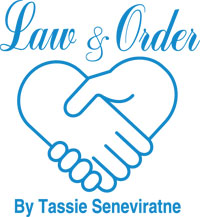Sunday Times 2
Health guidelines misused to thwart rights of peaceful protestors
View(s):Last week, the police arrested three leaders of the Ceylon Teachers’ Union and many others during a peaceful protest against a proposed law which they say will lead to the privatisation and militarisation of universities.
On Monday July 12, public school teachers withdrew from online teaching to protest against the detention of union leaders and others in quarantine centres under pandemic laws. Some 242,000 teachers and 16,000 principals joined the strike.
 Schools throughout the country remain closed because of the coronavirus pandemic and lessons were conducted online, till this situation arose.
Schools throughout the country remain closed because of the coronavirus pandemic and lessons were conducted online, till this situation arose.
In joint a statement, 11 education sector trade unions have said three union leaders and many others were illegally detained at quarantine centres after being arrested at peaceful protests. They were produced in courts, but after they were released on bail and were walking out from the courtrooms, they were bundled into vehicles and taken to quarantine centres without the health authorities’ concurrence. Bundling them into vehicles, in the manner it was done, certainly violated health regulations. Furthermore, why were they arrested at all?
Public Security Minister Sarath Weerasekara has told Parliament that the protestors violated the rules and that police would continue to arrest violators in the future too. This indicates that the arrests have been made on the orders of the Minister. Whether protesting per se was the violation or whether there was any violation in the manner of the protests, is not specified. Perhaps the Minister is clueless of the finer points of law. Whatever is the reason, who gave the Minister the powers to order arrests?
It is the police officer investigating into an offence who decides whether to arrest or not. Sec.32 of the Code of Criminal Procedure is quite clear on this. It says that a police officer may arrest (emphasis is mine). This confers a discretion to the investigating police officer who will decide whether arrest is necessary or not, and if necessary, when to arrest. Not even the Inspector General of Police has the power to order the investigating officer to arrest — least the Minister. It is also open to the police to obtain summons from courts to have suspects brought before courts. Arrest should not be made an instrument for punishment. But, often powers that be use the police to serve unlawful purposes.
According to Priyantha Fernando of the Ceylon Teachers Union, the protest has been against a proposed law which they say will lead to privatisation and militarisation of universities. This is a matter of such high public interest that it calls upon the government to explain the position rather than arrest and quarantine the protestors. Surely, the people are entitled to know this, education being such a priority, especially in regard to the lives of our youth.
The Bar Association of Sri Lanka, the main professional body for lawyers, has written to the Inspector General of Police, expressing concern over the right to lawful protests being violated misusing health guidelines, while the guidelines themselves do not prohibit indoor or outdoor protests.
It has also written to the Health Services Director General, requesting him not to allow health guidelines to be misused against peaceful protestors. This is clearly a matter for the health authorities, but apparently the Public Security Minister is usurping that role and the Police role.
Many questions arise from the peculiar arrests made by the police. What was the offence the protestors had committed when they were leaving courts after the first arrest? What was the charge explained to the protestors at the time of the second arrest? From video footage seen on news channels, it is clear that they were just bundled into vehicles and taken away without such legal niceties as explaining any charge against them. If they had committed a second offence why were they not produced in courts the second time? These peculiar arrests have infringed Fundamental Rights (FR) of these protestors down the line of police action.
Not even the police officers carrying out the arrests would have known the offence for which these protestors were arrested, except the fact that they had protested. But, protesting per se is not an offence. Public Security Minister Weerasekara, who justified the arrests in Parliament, taking responsibility for it, is also liable for FR violations. According to news reports, he is now trying to dissociate himself from responsibility for the arrests, after hearing of FR applications on the grapevine! Then, who has done it? As usual, the police are made the scapegoat.
That’s not all. Now there is the Attorney General (AG) coming into the fray. There is an episode in which opposition parliamentarian Harin Fernando is to be arrested in September on the orders of the AG over some statement he is alleged to have made. I am not going into the pros and cons of his statement. But my question is: Who gave the power of arrest to the AG? An unlawful order to arrest Fernando may well be subjected to FR violation. The AG too will then be a respondent. Is the AG not walking into these situations clueless of the repercussions?
None are so blind as those who refuse to see.
(The writer is a Retired Senior Superintendent of Police. He can be contacted at seneviratnetz@gmail.com – TP 077 44 751 44)

